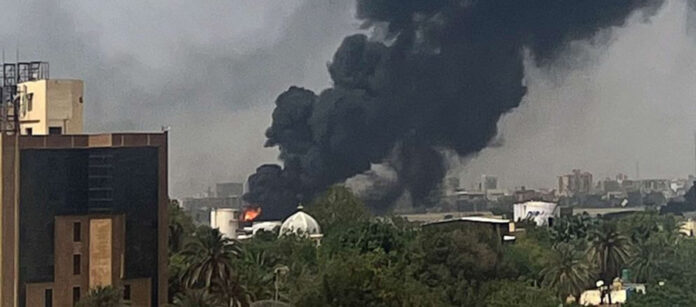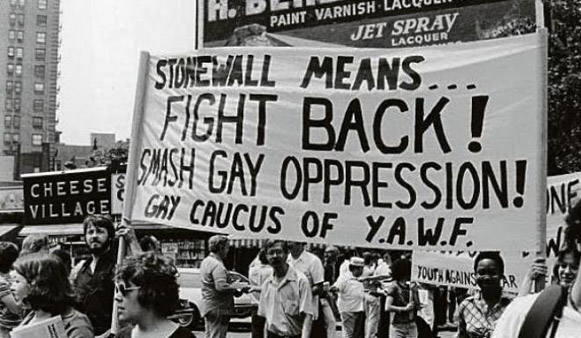Dimeji Macaulay
On Saturday, April 15, heavy military fighting broke out in Sudan. It is the latest escalation of the power struggle between army units loyal to General Abdel Fattah al-Burhan and armed forces led by General Mohamed Hamdan Dagalo (also known as Hemedti). Abdel Fattah al-Burhan is the de facto head of state and was chairman of Sudan’s Transitional Sovereignty Council- he is in fact controlling the “official” Sudanese army. Mohamed Hamdan is the leader of the paramilitary Rapid Support Forces (RSF) and was also serving as the deputy chairman of the same Transitional Sovereignty Council. It is a battle between the two main factions of the 2021 coup d’état.
According to reports coming from the capital Khartoum there is no water supply, power supply is not consistent, food supplies are scarce and there are continuous street battles. There are even heavy bombardments and air strikes. Black smoke can be seen around the airport, which is in the centre of Khartoum and right next to the military headquarters, and tanks were seen on some streets. In homes, schools, hospitals and universities people are trapped by the fighting and cannot evacuate. Hospitals are also running out of critical supplies.
The fight has escalated from Khartoum to Omdurman, Nyala, Port Sudan, Merowe and other cities. Around 200 people have been killed and more than 1,800 injured so far, but the number of casualties among soldiers is still not clear. The United Nations Special Representative to Sudan, Volker Perthes, has told the BBC that he is in daily contact with the two generals whose forces are fighting for control, but he says they are not talking to each other. All the main imperialist countries, from the US to China and Russia, have called for negotiations. But attempts for a ceasefire have failed so far.
An unending crisis
Sudan is situated in the north-east region of Africa and has a history of instability. It is the 3rd larger African country in size and shares borders with Eritrea, Egypt, Ethiopia, Chad, the Central African Republic, Libya and South Sudan (which gained independence from Sudan in 2011). Because of its strategic location and natural resources, the region is a battleground for conflicting interests. Sudan is rich in oil and gold.
After Sudan gained its independence from Egypt and the UK in 1956, it entered a long period of political instability with regular military coups. In 1989, Omar al-Bashir installed a military dictatorship that lasted for 30 years.
Al-Bashir was a brutal dictator. He had ties and hosted Osama bin Laden in the early years of his jihadist movement that led to the creation of al-Qaida and for that Sudan was listed in the US’s State Sponsors of Terrorism list. He initiated mass killings and repression of the people in Darfur (a region in Sudan hosting an ethnic minority), which led to up to 300,000 deaths and millions of displaced.
The anti-poor policies of al-Bashir led to mass misery in the 45 million Sudan population, which sparked protests and civil disobedience at several times. Each movement was harshly repressed by the army. He tried to do the same during the 2018-19 unrest. But the movement was so determined and massive, tired of his rule, that even his own army and allies turned against him fearing a wider revolt.
Even when the regime started killing people, the protests continued to spread. The government shut the internet and social media, cut electricity and water services, and dispersed protesters using tear gas. After dozens have been reported killed, al-Bashir arrested opposition leaders, imposed emergency rule and curfews in multiple cities and suspended classes in schools and universities. But it was clear people were determined to get rid of the dictatorship no matter what. That led parts of his regime to decide that they had to do away with him. He was arrested, detained and forced to resign by the army which constructed a transitional government (with both generals and civilian leaders) and began a process for a so-called transition to civilian rule.
Burhan and Hemedti
The two generals fighting now, al-Burhan and Hemedti, were close allies for decades. They were both high ranking officials of the dictatorship of al-Bashir until 2018. They both spearheaded abuse of human rights, arrests and torture of dissents. They both took part in the Darfur war and committed so many atrocities against Sudanese people.
After al-Bashir’s ousting in 2019, they both led the Transitional Sovereign Council (TSC) which promised elections. But this “peaceful transition” from a dictatorship to civilian rule on a capitalist basis could not solve any of the problems facing the people of Sudan. Soon, tensions begun to grow and they led to a new coup in 2021, in which Burhan and Hemedti kicked out the civilian leaders of the TSC and established a new Council controlled more tightly by the army, that is to say by themselves.
But as problems persisted and protests and resistance were widespread and ongoing, tensions begun to grow between Burhan and Hemedti themselves. It is a conflict between two warlords, fighting over power and influence and has nothing to do with the interest of the suffering people of Sudan. It is a rift between the ruling oligarchy and it’s not going to solve any problem- they both were part of the regime that created these problems in the first place. The current military escalation must be resisted by the people of Sudan- both warring camps are reactionary. The spectre of what happened in Syria or Libya, where mass uprisings were used by different forces and escalated in civil wars, is haunting Sudan now.
For an independent position
The Sudanese people have a tradition of mass struggles and movements. Their heroic struggle ended the 30-year rule of al-Bashir and this is a testament to their strength. The fact that al-Bashir’s dictatorhip banned trade union activities has of course affected the workers and has added to the lack of genuine political alternative for working people.
With the present situation of things, the Sudanese people need a united movement of all the oppressed against the generals and all capitalist politicians. Sudan has abundant resources, enough to solve the problems of hunger, poverty, starvation and enough to build a better country where peace, prosperity and justice shall reign. In order to achieve these, capitalism has to be overthrown and a socialist system needs to be installed. That means that the country’s resources and infrastructure must become public and the people must be engaged in the running of the country, through workers and social control and management.
To work towards that direction, there needs to be a movement independent of the Generals and bourgeois forces, which will include workers, small farmers and traders, students, oppressed ethnic minorities, women and LGBTQI+ people as well as trade union activists, youth groups, the whole of the Left and anyone who is genuinely seeking to fight for real change. These are the only forces that are prepared to fight until the end, independent of conflicting interests.
In any other case, the present crops of ruling class and generals will continue to pillage the resources of the country. Moreover, it is clear that the wider battle for world domination is spilling over Sudan. USA has for long kept away from Sudan because of its “war against terror” policy and is now trying to catch up, trying to establish control either directly or through its allies in the region. China and Russia are also trying to get a foothold in Africa to serve their interests. Russia, through its paramilitary Wagner Group operations, seems to have control over gold mining operations in cooperation with the RSF, and also seeks to build a naval base in the country. Different local powers are also trying to intervene and take sides, such as Egypt, Saudi Arabia, the UAE, ect. It is unclear as of yet if Burhan or Hemedti have firmly picked sides in the US vs China-Russia standoff. It is possible they are negotiating their position. What is clear is that they won’t stop at anything in order to consolidate their power. It is also clear that the different imperialist forces do not care about the fate of the people in Sudan, as long as they control whoever is in power. The horrible fate of the people of Libya and Syria must act as a warning to the people in Sudan. If the Left, the movements and the majority of working class people do not present an alternative to the warring reactionary camps, local and international, the prospect of a bloody civil war is on the agenda in Sudan. In their fight for an independent position, the Sudanese people should have the solidarity of the workers movement internationally.













